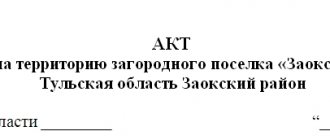Hot and cold water is turned off for several reasons, one of which is debts to pay for utilities. The current situation is such that citizens have more and more reasons to fall into the category of insolvent tenants. Therefore, the question of the powers of public utilities and debtors is relevant.
Reasons for turning off cold water supply
Most often, citizens can detect a lack of water for several reasons, these are:
- carrying out planned repairs in accordance with the approved schedule;
- unscheduled work in the event of an emergency in the intra-house system;
- repair of communications located outside the high-rise building.
If cold or hot water is turned off, citizens can call the dispatcher, and the responsible employee will report the reasons for stopping the supply of the resource and the approximate time frame for resuming the supply.
In addition, there are other situations when the water can be cut off:
- The water supply in one of the residential premises is in unsatisfactory condition. To avoid flooding of neighbors, temporary but urgent shutdown of utility systems and their repair are required;
- employees discovered an illegal connection to water communications. Unauthorized connection to the system is considered a violation of the law, and a fine is provided for this;
- Local authorities have issued an order to the utility service provider to stop water supply, and the latter is taking urgent measures to eliminate the identified violations.
Sources of information
The easiest way to obtain reliable information on shutting off cold water supply is to call the management company or the central control room, which operates around the clock.
You can find out the contact number directly from the receipts sent monthly for utility bills..
According to Government Decree No. 354 of 05/06/2011, the utility service provider is obliged to promptly inform residents about upcoming work (Chapter 4, Clause 31) and shutdown dates.
- If the shutdown concerns work outside residential premises, then the management company must provide information about this to residents no less than 10 working days before turning off the water supply.
- If it is necessary to carry out actions inside a residential premises, then first there is a verbal agreement (Chapter 4, paragraph 31n) with the residents . If the management company does not have such an opportunity, then a notification is sent to the apartment.
Citizens must receive notification at least three days before planned events.
The notification indicates not only the date, but also the time of completion of the work, its duration, a telephone number for contacting a representative of the management company, as well as his full name and position.
Read the article about what to do and where to go if there is low water pressure in your apartment.
Permissible duration of cold water shutdown
Decree of the Government of the Russian Federation dated May 6, 2011 No. 354 regulates the norms and requirements for cold water in the event of planned and unplanned situations of interruption of water supply.
Based on this document:
- consumers are not allowed to be left without water for more than 8 hours within one month;
- A one-time shutdown of cold water is allowed for a maximum of 4 hours.
These standards are approved in case of scheduled repairs. If emergency situations arise, the resource supplying organization is obliged to eliminate breakdowns as soon as possible. For such cases, standards for damage elimination are established depending on the complexity of the situation, the depth of the pipeline, as well as other factors influencing the solution of the problem.
If planned events take longer, this indicates poor quality of service. In this case, the consumer may request a recalculation for the water consumed.
Citizens also have the right to demand a reduction in payment for services if the utility company does not comply with the contract for the provision of services. For example, if the pressure in the pipes has dropped by 25% or more.
The contract specifies the obligations of all parties that must be observed. The consumer must pay for the services received on time and in full. If he does not comply with this clause of the agreement, the resource supplying organization will charge penalties for late payments.
On the other hand, the supplier is obliged to fulfill its obligations regarding the quality of service provision. Therefore, any shutdowns of cold water must be carried out legally and carried out in accordance with established regulations and standards. The supplier will face financial sanctions for violating the contract.
Responsibility of the management company for illegal disconnection
The law provides for liability of suppliers for illegally turning off water:
- Administrative liability - a fine of 500 to 1,000 rubles for officials and from 5,000 to 10,000 rubles for legal entities.
This measure is applied by regulatory authorities if violations are established (Article 19.1 of the Code of Administrative Offenses). - Criminal liability is established by the court in the event of material or moral harm being caused to the owner.
The act carries a fine of up to 200,000 rubles and imprisonment of up to 3 years.If a person’s death occurs as a result of illegal actions, imprisonment is possible for up to 5 years. In addition, a ban is imposed on the right to hold leadership positions for three years.
- Arbitrariness is punishable by a fine of 80 thousand rubles (or in the amount of six months' salary) or forced labor for up to 200 hours.
If there are threats against the debtor, arrest for up to six months is applied. In exceptional cases, the court increases the term to 5 years (Article 330.215 of the Criminal Code).
If the disconnection is declared illegal due to lack of notification, the debtor receives a paper and is given a 30-day period to repay the debt. You will have to pay the bills anyway.
The illegally turned off water supply must be restored within three days, and payments must be recalculated.
Emergency shutdown of cold water
If a breakdown is detected in the water supply system, the resource supplying organization is obliged to take immediate measures to identify the causes. Utilities are also obliged to eliminate violations and carry out repairs as soon as possible. All efforts of the organization must be aimed at eliminating the accident. The time to solve the problem and carry out repairs is regulated by SNiP 2.04.02-84.
Reasons for an emergency shutdown of water supply, in addition to a pipeline break and other damage to the system:
| Reduced quality of drinking water | In such a situation, water supply will be resumed only after the problem has been completely eliminated. Since these indicators affect people’s health, therefore, this measure is completely justified. |
| To extinguish fires | During firefighting periods, increased volumes of water are required to eliminate the problem as quickly as possible. Water must be provided immediately after the fire has been extinguished. |
During the period of restriction of water supply through the central system, the utility organization is obliged to provide a supply of drinking water in special automobile tanks. The volume of water should be delivered taking into account consumption standards per person. But there is one drawback - the time for water delivery is not specified.
At the same time, during planned outages, utility companies warn consumers in advance about the outage. Citizens have time to prepare for the shutdown; they stock up on their own. In this case, drinking water tanks will deliver liquid only if the planned work lasts more than a day. In emergency situations, the organization is obliged to ensure the supply of water to meet the daily needs of citizens.
Recalculation of the fee when the cold water supply is turned off
The service provider can recalculate receipts up or down. In the event of a shortfall in resources due to a water outage, consumers have the right to demand recalculation.
To do this, citizens must write an application and reflect:
- a request to reduce the amount indicated in the invoice for services provided;
- draw up your calculations with references to current standards;
- your arguments for recalculation;
- If there is documentary evidence, attach copies of available papers.
Citizens may request a reduction in payments if:
- After the completion of the technical work, the water supply was resumed in violation of the deadline. Therefore, it is possible to achieve a fee reduction of 0.15% if water is delayed for more than 4 hours at a time, or for more than 8 hours within one month;
- Water of inadequate quality flows from the tap. The fee for each day of receipt of low-quality liquid must be waived;
- the pressure in the pipes dropped by more than 25%. This is also considered unacceptable, since citizens cannot fully obtain a vital resource. It is possible to obtain a waiver of fees for specific days when the pressure in the pipes has dropped.
Citizens should know their rights and, if necessary, protect them. In this case, it is possible to achieve high-quality services, and in some cases reduce fees for under-received or low-quality services.
We also suggest that you read the previous article on a similar topic: turning off hot water by law
Causes
There may be many answers to the question of why the cold water was turned off today. Water supply is turned off due to the following factors:
- scheduled repairs are being carried out. In this option, residents of the house must be notified of future events ten days in advance. The responsibility for notification falls on management organizations;
- emergency situation on communications;
- accident on networks outside a multi-storey building.
When unforeseen emergencies occur, the water supply is turned off without notification. There are other situations when there is no water supply:
- The water supply in the premises is in poor condition and the owner of the apartment does not correct the problem. In such situations, the water supply is turned off in order to avoid flooding of the apartments below. The outage does not last forever, it is carried out urgently to carry out repairs.
- An independent connection to the water supply system was detected. This is considered a violation of the law and is often stopped and punished with fines.
- Government authorities at any level decided to stop water supply to the site. The supplier implements this decision, and in case of disagreement, you can appeal not its actions, but the decisions of the authorities.
According to sanitary standards, turning off cold water due to debt is prohibited, as is deprivation of heating in cold weather. It turns out that drinking water supply can be stopped only in case of an emergency, planned repairs, preventive maintenance and unofficial connection to networks.
Deadlines
Time limits are established by law for planned and emergency water supply outages. During one month, the client can be left without water for a total of no more than eight hours.
The maximum limit for one outage is four hours. This applies to all planned manipulations.
In the event of an accident, water companies must correct the problems within a short period of time. In this situation, the time standards will be different; they will depend on the complexity of the emergency situation, the depth of the pipelines, and so on.
If the planned shutdown of water supply takes longer than usual, this indicates an inadequate quality of the services provided. There is no need to think about when the water will be given and the water supply will be turned on; in this situation, you have the right to demand that the company recalculate payment for services.
Not only is it considered a violation of the agreement on the supply of drinking water to the premises if it is turned off beyond the established time frame. This can also include a decrease in pressure in the pipes. If it drops by 20% or more, then this also becomes a reason to recalculate the payment in terms of reducing it.
ATTENTION! The client must constantly pay water bills; for violations, he is punished with penalties and fines. At the same time, the company receives a share of responsibility for the quality of services provided.
If you're wondering. why the cold water was turned off, know that there is an answer to this question. All water supply shutdowns must have a reason and the process must be carried out in a certain order, otherwise the company will also face fines. There is a list of cases in which turning off water is considered illegal:
- Planned technical manipulations are being carried out, but residents have not received the necessary preliminary messages;
- the water supply was shut off for debt, even if there was a debt. As has already been said, no one should have their drinking water turned off. To deal with debtors, companies must use other methods, for example, accrue penalties and fines, apply to the courts, and limit the provision of other services;
- unreasonable termination of water supply or decrease in pressure;
- delay in turning on the water supply after the faults have been corrected. That's the whole list.
Methods for filing a claim with the Criminal Code and response deadlines
A claim to the management company for illegal shutdown of water supply can be submitted to the responsible employee or sent to the organization by registered mail with notification. When submitted in person, the claim is drawn up in two copies . The receiving employee must sign and date the copy remaining with the applicant.
A response from the management company must be received within 10 days from the date of receipt of the claim. A response to a complaint to Rospotrebnadzor, the Housing Inspectorate or the prosecutor's office must follow within 30 days. If organizations violate the deadlines for taking measures, the consumer should file a claim in court.
The consumer is obliged to pay for the services provided to him in a timely manner and in the proper amount, so that the management company does not have grounds for turning off their water. If managers exceed their authority and turn off the water illegally, it is worth calling them to account and restoring their own consumer rights.
Emergency shutdown
In the event of an emergency, water stops flowing immediately to reduce negative consequences and promptly resolve the problem. Utilities must carry out repairs and restore supply within a couple of hours. This takes all my strength. The estimated time for troubleshooting problems in the water supply system is established in SNiP 2.04.02-84.
Emergency shutdown of water supply is carried out not only in case of pipeline breaks and simple violations of its transportation system. Another factor in this could be a serious decline in the quality of drinking water.
In this situation, it is also turned off until the fault is resolved. This is quite reasonable, because it concerns people's health.
In emergency mode, water supply is cut off when extinguishing fires, to which huge water resources are redirected. Most fires are put out quite quickly, so people don't get upset.
A separate process in case of problems with water supply is the supply of drinking liquid. It is delivered by tanker trucks in quantities that meet the water consumption standards for people. A specific delivery time has not been established. However, there are some rules that help reduce the discomfort of the population.
ATTENTION! If the shutdown of cold water is in effect as planned, then notified people make certain supplies at home.
In this situation, special tanks are redirected to the site only if repair, restoration or preventive manipulations are delayed for a long time. In an accident, everything happens differently. If the emergency situation is not resolved within a couple of hours, then liquid is supplied to ensure current consumption.
Where to contact?
To find out why it was turned off, you should contact the emergency dispatch service or call the city water utility hotline.
Moreover, it is better to call the emergency service first, since 90% of unplanned outages are caused by an accident that occurred in the water supply networks.
But there are other reasons:
- Disconnection for debts.
- There is a fire or natural disaster nearby.
- Poor water quality.
- Exceeding the permissible level of consumption by any of the residents.
Important! It often happens that employees of the organization supplying water simply made a mistake and disconnected the wrong apartment.
Rules for the provision of water supply services
What does the legislation say, how long can the water supply be turned off according to the law? The official resolution outlines the main conditions and rules for the provision of cold water. An agreement between the management company and the supplier must be signed. Moreover, this needs to be done for both water supply and sanitation.
In such agreements, it is necessary to highlight the following important parties:
- Volume of liquid, its pressure in the pipeline;
- Delivery time;
- Fluid quality and constant monitoring;
- Conditions under which the cold water supply may be temporarily turned off or limited.
The conditions under which cessation of water supply without warning is permitted can only be accidents. The time it takes to resolve an emergency depends on the severity of the problem and the depth of most pipes, but it should not last more than one day.
In other cases, owners cannot be without water supply for more than four hours per day and eight hours per month, in general terms. At the same time, the supplier and the company must notify everyone about water outages.






